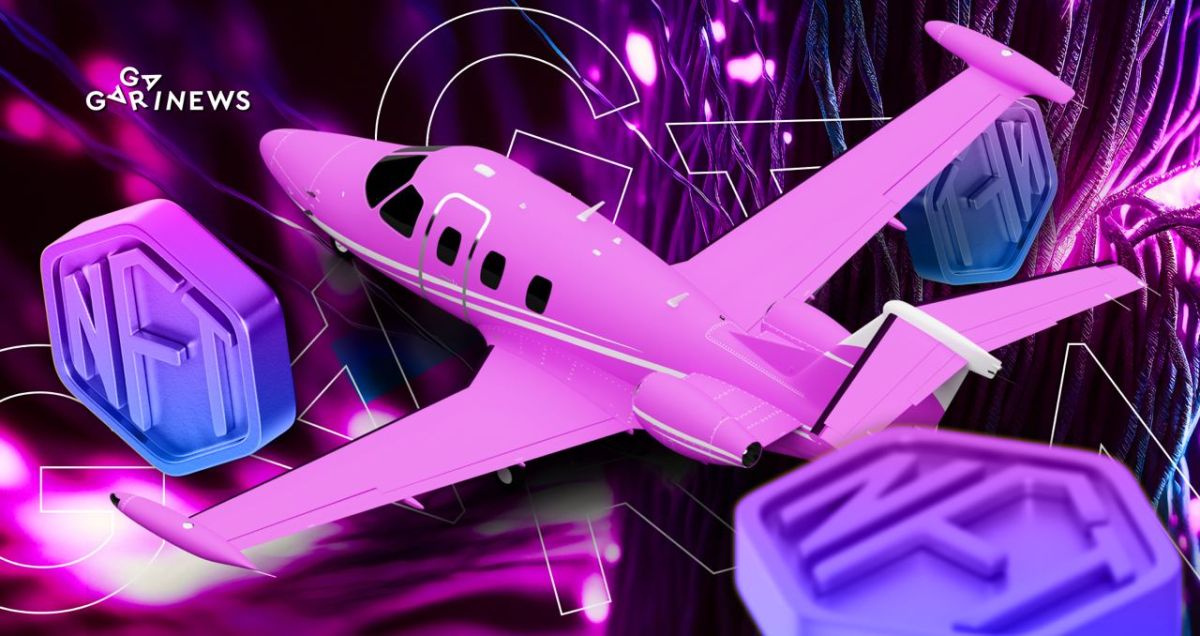NFTs and Metaverse Airlines: Boarding the Web3 Journey

NFTs, metaverses, cryptocurrencies, and other Web3 elements are fast becoming the latest trend in the aviation industry. Companies providing air travel are proactively adapting to these emerging digital realities.
In their pursuit of innovation, these companies strive to differentiate themselves from their rivals and generate memorable experiences for their customers. How are airlines tapping into the decentralized blockchain-led space?
Air Europa
In April 2022, Spain's Air Europa became the pioneering airline to issue NFT-based plane tickets. This venture was handled by the firm TravelX and the Algorand blockchain. Passengers who bought these novel NFTickets took the Madrid-Miami flight in November 2022.
Subsequently, Air Europa was honored as the most innovative airline of 2022 at the Future Travel Experience Awards.
airBaltic
The year 2022 also marked a milestone for the Latvian airline, airBaltic. It released an NFT collection named Planies, featuring 10,000 unique tokens representing animated airplanes with distinct traits.
This initiative was designed to enhance the airBaltic Club's loyalty program. Owners of Planies tokens enjoy rewards, discounts, and cashback on flights.
Moreover, since 2014, the airline has been accepting Bitcoin as a form of payment. airBaltic stands as one of the first global businesses to positively embrace cryptocurrencies.

Sample NFT from the Planies collection. Source: planiesnft.com
Qatar Airways
Qatar's national airline, Qatar Airways, took a different approach to Web3 exploration by launching its metaverse called Qverse for visitors to their website. This virtual reality endeavor was a joint effort with technology company Neutral Digital. Through this feature, customers can virtually traverse the premium check-in area of Hamad airport and explore airplane cabins from the comfort of their own homes.
Within Qverse, users are welcomed by flight attendant Sara, who represents MetaHuman. She guides people through the airline's services. Sara was crafted using the Unreal Engine software from Epic Games, a leading 3D tool used by game developers and movie studios for creating special effects.

Flight attendant Sara at the Qverse metaverse entrance. Source: qatarairways.com
Vueling
Yet another Spanish airline, Vueling, decided to embrace the wave of innovation. In order to do so, Vueling teamed up with BitPay, a cryptocurrency payment app, planning to accept 13 of the leading cryptocurrencies by market capitalization starting from 2023. These include BTC, ETH, BCH, LTC, DOGE, and SHIB. The Universal Air Travel Plan (UATP) technology was instrumental in facilitating these crypto payments.
All Nippon Airways
In May 2023, All Nippon Airways, Japan's leading international airline, introduced the NFT platform ANA GranWhale for their domestic market. This venture is initiated by ANA Neo, a subsidiary committed to crafting a 3D metaverse for virtual tourism. Back in March 2022, ANA Neo secured an impressive amount of funding, clocking in at $38.4 million.

Example of an NFT from the ANA GranWhale marketplace. Source: nft.ana-granwhale.com
The airlines mentioned above represent just a small fraction of the companies venturing towards the Web3 landscape, yet they offer clear examples of the trend. They illustrate the myriad ways NFTs, metaverses, and cryptocurrencies can be adopted within the air transport sector. Possibilities include collectible non-fungible tokens in loyalty programs, airplane tickets in the form of NFTs, virtual reality tours of aircraft, or simply accepting meme coins as payment for flights.
Recommended

